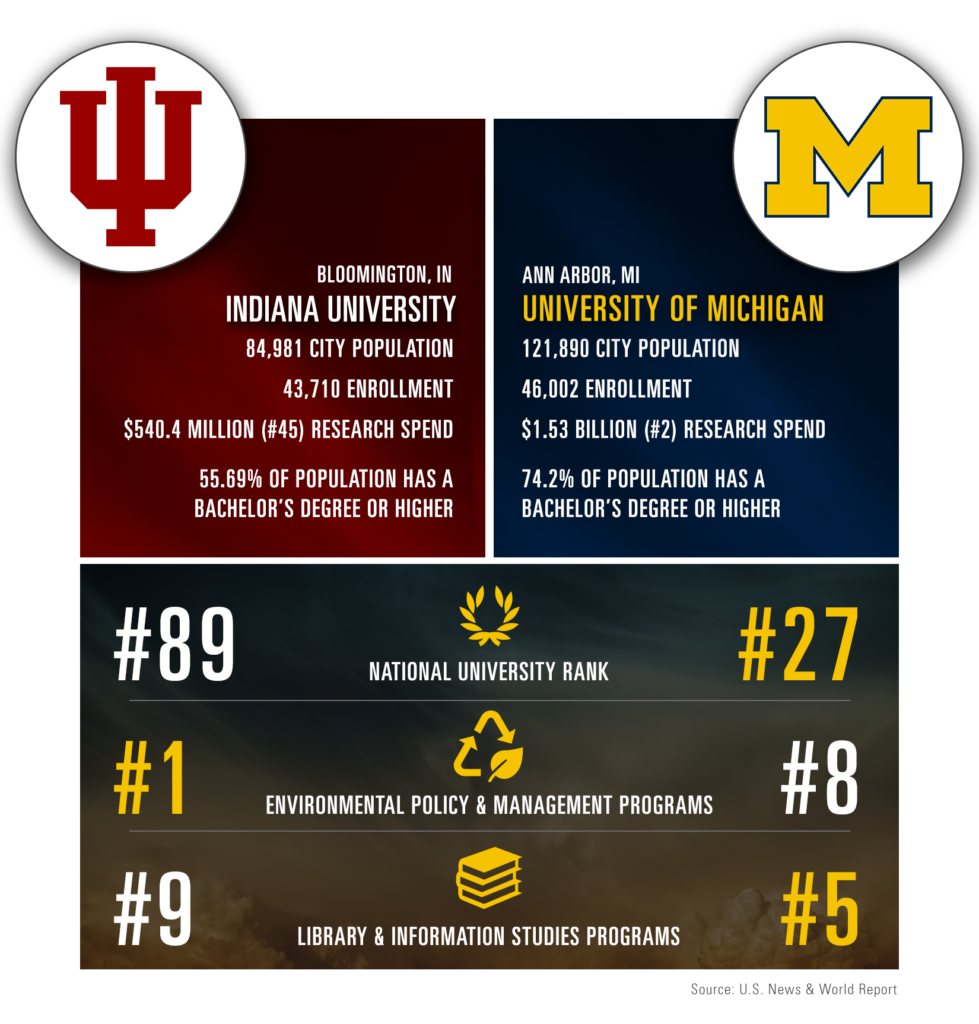
Our football blog series is back for the fourth straight year! We use the football season as an incentive to compare Ann Arbor to cities around the country represented by our U-M football competition. The question is always – how does Ann Arbor compare to other college towns in the US?
This weekend the Wolverines take on the Hoosiers from Indiana University in Bloomington. Good luck trying to find the origin of the term, which remains a matter of debate within the state… anyone born in Indiana or resident of the state is considered a Hoosier…OR anyone who went to Indiana University.
In 2017 Indiana University more than doubled their research spending from approximately $200 million to about $485 million. This huge increase propelled them forward in the rankings from #101 to #46, and now they have moved up one more to #45. Bloomington and Ann Arbor are relatively similar, unlike some of our other comparisons. Here is our usual context to set the stage for the infographic:
- Bloomington is smaller than Ann Arbor by about 40,000 people – and IU has a larger total enrollment. *
- Both Bloomington and Ann Arbor are in similar proximity to a large metropolitan city – Bloomington is about an hour away from Indianapolis.

*For the savvy ones out there wondering how enrollment affects population, the Census tries to calculate population in a town by excluding college students – check out this article to go deep into the rabbit hole of how that can be an issue. We’ll be waiting right here when you get back…
Data Dive
Where do we get our numbers? And what do they mean?
- Population comes from the US Census, 2017 Population Estimates. Check out Ann Arbor’s data here.
- Enrollment comes from each university’s website (what they report on enrollment).
- Research spend comes from the National Science Foundation Rankings by Total R&D Expenditures.
- Educational attainment comes from the US Census 2012-2016 American Community Survey 5-Year Estimates. We look specifically at the population over the age of 25, and the highest level attained. Check out Ann Arbor’s data here.
- The rankings come from US News and World Report unless otherwise mentioned.